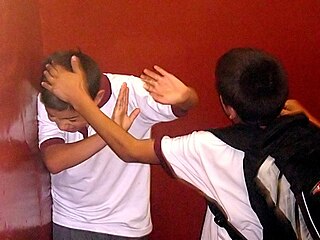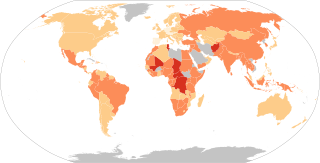| David A. Verhaagen |
|---|
| Birthdate |
| June 21, 1964 |
| Occupation |
| Psychologist, author |
| Hometown |
| Norfolk, VA |
| Residence |
| Nashville, TN |
| Alma mater |
| James Madison University (B.S., 1986), University of North Carolina-Chapel Hill (M.Ed., 1991, Ph.D., 1993) |
| Influences |
| Martin Seligman, Robert Brooks, William R. Miller, Stephen Rollnick |
| Spouse |
| Ellen M. Verhaagen |
David A. Verhaagen (born June 21, 1964) is an American psychologist and the author or co-author of nine books, including Therapy with Young Men, Assessing and Managing Violence Risk in Juveniles, Sexually Aggressive Youth, and Parenting the Millennial Generation. As a licensed psychologist who earned his Ph.D. in psychology from the University of North Carolina at Chapel Hill, Verhaagen previously served as clinical director for three mental health agencies. He is a founding partner of Southeast Psych, a large psychology practice in Charlotte, NC and Nashville, TN. He is board-certified in Child and Adolescent Clinical Psychology by the American Board of Professional Psychology and is a Fellow of both The American Board of Clinical Psychology and The American Board of Clinical Child and Adolescent Psychology. He has been cited several times in USA Today [1] [2] [3] [4] [5] [6] and Newsweek. [7] He is an Adjunct Assistant Professor at Vanderbilt University with the Ph.D. Clinical Psychology program.
As an author, Verhaagen has written on a range of topics, including parenting, violence risk, and therapeutic processes. His writings are unified by a focus on the positive, resiliency-based aspects of psychology. Verhaagen has individually authored two books. Published in 2010,Therapy with Young Men: 16-24 Year Olds in Treatment (Routledge) provides a model of therapy for working with young men in their late teens and early twenties. The book draws from the influences of Motivational Interviewing, Cognitive-Behavioral Therapy, and Positive Psychology. [8] His book, Parenting the Millennial Generation: Guiding Our Children Born Between 1982 and 2000 (2005, Greenwood Publishing), offers research-based parenting strategies for building resilience in children. As with most of his writing, the book focuses on how to build on each individual's unique strengths. [9] His most recent book, "How White Evangelicals Think: The Psychology of White Conservative Christians," offers insights about evangelicals from the perspective of both psychological research and as an evangelical insider. [10]
Verhaagen has co-authored six books, including Assessing and Managing Violence Risk in Juveniles with Dr. Randy Borum, (2006, Guilford Press). [11] He also co-authored Sexually Aggressive Youth: A Guide to Comprehensive Residential Treatment (2001, Praeger Press) with Tim Lemmond, M.A. [12] With Lemmond, he also co-wrote the chapter, “Successful Transitions of Sexually Aggressive Youth from Secure Residential Settings to Less Secure Community Settings,” published in On Transitions from Group Care: Homeward Bound in 2003. [13]
Verhaagen contributed the opening chapter entitled, “Seven Keys to Developing Your Dream Non-Managed Care Practice” to Earning a Living Outside of Managed Mental Health Care (2010, APA Books). [14] He also contributed a chapter to Breaking Barriers in Counseling Men: Insights and Innovations (2013, Routledge) [15] He has also written chapters for The Walking Dead Psychology [16] and Game of Thrones Psychology, [17] both edited by Dr. Travis Langley.
Antisocial personality disorder is a personality disorder characterized by a limited capacity for empathy and a long-term pattern of disregard or violation of the rights of others. Other notable symptoms include impulsivity and reckless behavior, a lack of remorse after hurting others, deceitfulness, irresponsibility, and aggressive behavior.

The field of psychology has extensively studied homosexuality as a human sexual orientation. The American Psychiatric Association listed homosexuality in the Diagnostic and Statistical Manual of Mental Disorders (DSM) in 1952, but that classification came under scrutiny in research funded by the National Institute of Mental Health. That research and subsequent studies consistently failed to produce any empirical or scientific basis for regarding homosexuality as anything other than a natural and normal sexual orientation that is a healthy and positive expression of human sexuality. As a result of this scientific research, the American Psychiatric Association declassified homosexuality as a mental disorder in 1973. Upon a thorough review of the scientific data, the American Psychological Association followed in 1975 and also called on all mental health professionals to take the lead in "removing the stigma of mental illness that has long been associated" with homosexuality. In 1993, the National Association of Social Workers adopted the same position as the American Psychiatric Association and the American Psychological Association, in recognition of scientific evidence. The World Health Organization, which listed homosexuality in the ICD-9 in 1977, removed homosexuality from the ICD-10 which was endorsed by the 43rd World Health Assembly on 17 May 1990.

Physical abuse is any intentional act causing injury, trauma, bodily harm or other physical suffering to another person or animal by way of bodily contact. Physical abuse is a type of abuse that involves physical violence, such as hitting, kicking, pushing, biting, choking, throwing objects, and using weapons. Physical abuse also includes using restraints or confinement, such as tying someone up, locking them in a room, or restraining them with drugs or alcohol. Physical abuse can also include withholding basic needs, such as food, clothing, or medical care. In addition to the physical injuries caused by physical abuse, it can also lead to psychological trauma, such as fear, anxiety, depression, and post-traumatic stress disorder. Physical abuse can occur in any relationship, including those between family members, partners, and caregivers. It can also occur in institutional settings, such as nursing homes, schools, and prisons. Physical abuse can have long-term physical, psychological, and social consequences, and can even be fatal.

Joseph Nicolosi was an American clinical psychologist who advocated and practised "reparative therapy", a form of the pseudoscientific treatment of conversion therapy that he claimed could help people overcome or mitigate their homosexual desires and replace them with heterosexual ones. Nicolosi was a founder and president of the National Association for Research and Therapy of Homosexuality (NARTH). Medical institutions warn that conversion therapy is ineffective and may be harmful, and that there is no evidence that sexual orientation can be changed by such treatments.
The term cycle of violence refers to repeated and dangerous acts of violence as a cyclical pattern, associated with high emotions and doctrines of retribution or revenge. The pattern, or cycle, repeats and can happen many times during a relationship. Each phase may last a different length of time, and over time the level of violence may increase. The phrase has been increasingly widespread since first popularized in the 1970s.

Suicidal ideation, or suicidal thoughts, is the thought process of having ideas, or ruminations about the possibility of ending one's own life. It is not a diagnosis but is a symptom of some mental disorders, use of certain psychoactive drugs, and can also occur in response to adverse life events without the presence of a mental disorder.
Gender is correlated with the prevalence of certain mental disorders, including depression, anxiety and somatic complaints. For example, women are more likely to be diagnosed with major depression, while men are more likely to be diagnosed with substance abuse and antisocial personality disorder. There are no marked gender differences in the diagnosis rates of disorders like schizophrenia and bipolar disorder. Men are at risk to suffer from post-traumatic stress disorder (PTSD) due to past violent experiences such as accidents, wars and witnessing death, and women are diagnosed with PTSD at higher rates due to experiences with sexual assault, rape and child sexual abuse. Nonbinary or genderqueer identification describes people who do not identify as either male or female. People who identify as nonbinary or gender queer show increased risk for depression, anxiety and post-traumatic stress disorder. People who identify as transgender demonstrate increased risk for depression, anxiety, and post-traumatic stress disorder.

Rape is a type of sexual assault involving sexual intercourse or other forms of sexual penetration carried out against a person without their consent. The act may be carried out by physical force, coercion, abuse of authority, or against a person who is incapable of giving valid consent, such as one who is unconscious, incapacitated, has an intellectual disability, or is below the legal age of consent. The term rape is sometimes used interchangeably with the term sexual assault.
Sibling abuse includes the physical, psychological, or sexual abuse of one sibling by another. More often than not, the younger sibling is abused by the older sibling. Sibling abuse is the most common of family violence in the US, but the least reported. As opposed to sibling rivalry, sibling abuse is characterized by the one-sided treatment of one sibling to another.
According to Michael First of the DSM-5 working committee the focus of a relational disorder, in contrast to other DSM-IV disorders, "is on the relationship rather than on any one individual in the relationship".
Richard B. Gartner is a clinical psychologist who was trained both as a family therapist and an interpersonal psychoanalyst. One of the founders of MaleSurvivor: the National Organization on Male Sexual Victimization [www.malesurvivor.org], he is a Past President of the organization and now chairs its advisory board. He is known for his research and clinical work in the area of child sexual abuse against boys and its aftermath for them as men.
There are many theories explaining the causes of sexual violence. These theories include military conquest, socioeconomics, anger, power, sadism, traits, ethical standards, laws, and evolutionary pressures that lend some explanation to the causes of sexual violence. Most of the research on the causes of sexual violence has only been done on male offenders and has been target of criticism.
Alan Edward Kazdin is Sterling Professor of Psychology and Child Psychiatry at Yale University. He is currently emeritus and was the director of the Yale Parenting Center and Child Conduct Clinic. Kazdin's research has focused primarily on the treatment of aggressive and antisocial behavior in children.
Frank W. Gaskill is an American psychologist and author who specializes in autism spectrum disorder (ASD), effective parenting, and assisting children to use technology to develop communication skills. With David A. Verhaagen, Gaskill co-founded a private psychology practice in Charlotte, North Carolina called Southeast Psychological Services. It later became known as Southeast Psych.
Vernon Lewis Quinsey is a Canadian psychologist. He has studied violent crime offenders, sex offenders, sexually violent predators, juvenile delinquency, and ways to predict, assess, and manage individuals with these tendencies. He testified in court that a rapist, Allen Edward Bullock, was "erotically attracted to that kind of behavior".
Transgender health care includes the prevention, diagnosis and treatment of physical and mental health conditions, as well as sex reassignment therapies, for transgender individuals. A major component of transgender health care is gender-affirming care, the medical aspect of gender transition. Questions implicated in transgender health care include gender variance, sex reassignment therapy, health risks, and access to healthcare for trans people in different countries around the world.
The concept of toxic masculinity is used in academic and media discussions to refer to those aspects of hegemonic masculinity that are socially destructive, such as misogyny, homophobia and violent domination. These traits are considered "toxic" due in part to their promotion of violence, including sexual assault and domestic violence. Socialization of boys sometimes also normalizes violence, such as in the saying "boys will be boys" about bullying and aggression.
LGBT psychology is a field of psychology of surrounding the lives of LGBTQ+ individuals, in the particular the diverse range of psychological perspectives and experiences of these individuals. It covers different aspects such as identity development including the coming out process, parenting and family practices and support for LGBTQ+ individuals, as well as issues of prejudice and discrimination involving the LGBT community.

Julie Schwartz Gottman is an American clinical psychologist, researcher, speaker, and author. Together with her husband and collaborator, John Gottman, she is the co-founder of The Gottman Institute – an organization dedicated to strengthening relationships through research-based products and programs. She is the co-creator of the Sound Relationship House Theory, Gottman Method Couples Therapy, and The Art and Science of Love weekend workshop for couples, among other programs. In addition to her internationally recognized clinical work, Julie Schwartz Gottman is the author or co-author of six books – Ten Lessons to Transform Your Marriage, And Baby Makes Three, 10 Principles for Doing Effective Couples Therapy, The Man's Guide to Women, The Marriage Clinic Casebook, and The Science of Couples and Family Therapy. She is also the co-author of over 30 peer-reviewed journal articles.
Barbara L. Bonner is a clinical psychologist and expert on juvenile sex offenders. She is known for her research on the assessment and treatment of abused children, prevention of child fatalities due to neglect, and treatment of children and adolescents with problematic sexual behavior. Bonner is the CMRI/Jean Gumerson Endowed Chair and Professor of Pediatrics at the University of Oklahoma College of Medicine. She serves as the Director of the Child Abuse and Neglect at the University of Oklahoma Health Sciences Center.